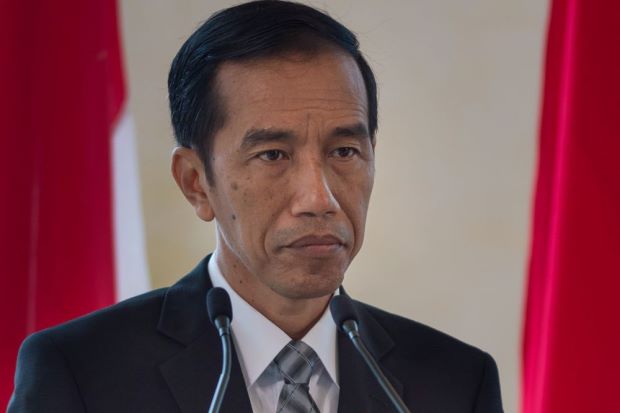Yesterday, large student-led demonstrations took place in cities across Indonesia to protest the passage of a number of controversial pieces of legislation that have been heavily criticized by activists and the general public.
While it now appears likely that several of the still-pending bills will be delayed until after the end of the current legislative session, President Joko Widodo explicitly stated last night that he would not fulfill one of the protesters’ most urgent demands by using his powers to block the already-passed and much reviled revisions to the law governing the Corruption Eradication Commission (KPK).
The revisions to the law on the KPK were passed by the House of Representatives (DPR) on Sept. 16 (after a suspiciously brief discussion period of less than two weeks) over the protests of anti-graft activists who argued that the revisions would all but cripple the commission’s ability to root out corruption at the highest levels of government.
One of the main demands voiced at yesterday’s protests was for Jokowi use his executive powers to issue a Perppu (Government Regulation in Lieu of Law) that would at least temporarily blocking RUU KPK from taking effect.
But Jokowi seemed to dash any hopes of that by explicitly stating that he would not issue such a Perppu last night. Following a meeting with DPR leaders, the president said they had agreed to delay passage of a number of still-pending bills — chief among them the highly controversial Revised Criminal Code (RKUHP) — while also confirming he would not use his executive powers to stop the KPK law revisions.
Explaining why he had asked for the other controversial bills to be delayed due to public criticism but would not block RUU KPK over similar concerns, Jokowi said that those bills had been initiated by his government, whereas the KPK revision bill was the product of the DPR.
“That one (RUU KPK) was the initiative of the DPR. Those (other four bills) were active because they were being prepared by the government,” Jokowi said as quoted by CNN Indonesia..
It’s an answer that few anti-corruption activists are likely to be satisfied with, but it is consistent with Jokowi’s stance prior stance on the bill. The President previously claimed to be sensitive to concerns about RUU KPK, and sent an official letter (Surpres) to the DPR regarding the bill. However, after legislators gave Jokowi a revision he requested — giving the president the power to choose the members of the KPK “oversight committee” — the letter acted as a statement of government approval, thus clearing the way for the bill’s rapid passage.
Jokowi has never truly addressed the other serious concerns critics have about RUU KPK, such as its removal of the agency’s independent status, the requirement that KPK investigators obtain permits from the oversight council to conduct wiretaps, or its removal of KPK’s ability to recruit its own investigators, requiring them instead to pick from the ranks of the notoriously corrupt police force.
Over his political career, President Jokowi has built up a reputation for being a clean politician and even campaigned on promises of strengthening the KPK earlier this year. His anti-graft reputation may soon rest in ruins if his decision not to fight RUU KPK sets Indonesia back down the path of kleptocracy that it has fought so hard to turn away from.




